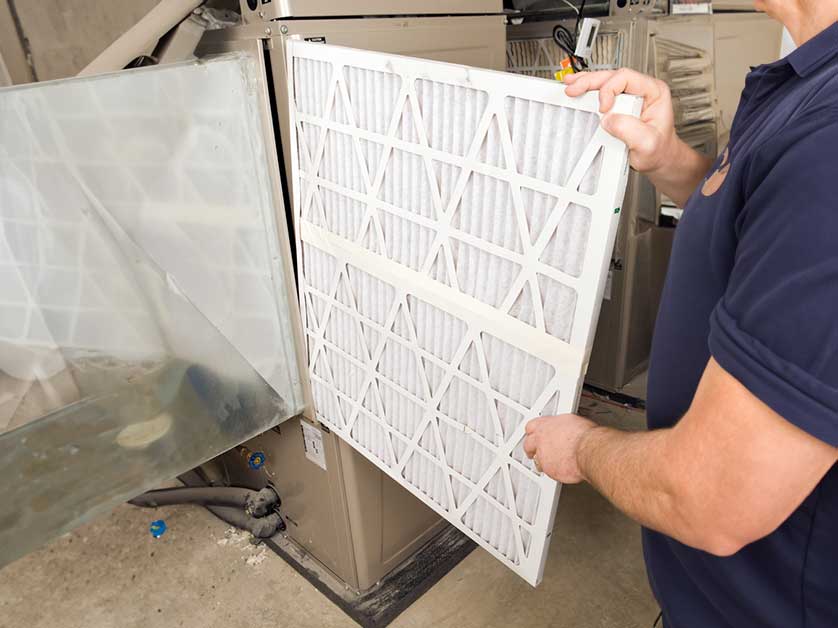Which Air Filters Are Best for Allergies?
Being triggered by allergies at home can be frustrating. Fortunately, the right air filter for your HVAC system can reduce the allergens in your living space. Continue reading as we explain the different types of air filters and the factors to consider when choosing one.

Types of Air Filters for Allergies
A key aspect of combating allergies is understanding the different types of air filters that can help reduce allergens in your home.
Mechanical Filters
Mechanical filters work by trapping airborne particles as air passes through them. Some examples of this type of filter include:
-
Fiberglass Filters
These are the most basic and affordable option. However, there may be better choices for those with severe allergies as fiberglass filters capture only larger particles.
-
Pleated Filters
Pleated filters capture smaller particles because they are made of denser material. They offer better allergen control compared to fiberglass filters.
-
HEPA Filters
High-efficiency particulate air (HEPA) filters are the gold standard for eliminating allergens and contaminants in the air. They are designed to capture 99.97% of particles as small as 0.3 microns, including pollen, dust mites and pet dander.
Electronic Filters
Electronic filters use electrically charged plates or ions that attract and capture particles. Examples of this filter type include:
-
Electrostatic Precipitators
These filters use charged plates to trap particles. The particles can then be removed and cleaned.
-
Ionizers
These devices release ions into the air, causing particles to clump together. This makes it easier to trap them in a filter or for them to settle out of the air.
Activated Carbon Filters
Activated carbon filters use a chemical process to adsorb odors and volatile organic compounds (VOCs), which can also be allergens for some people.
Factors to Consider When Choosing an Air Filter
When selecting an air filter for your home, keep the following factors in mind:
-
MERV rating. The minimum efficiency reporting value (MERV) ranges from 1 to 16. It indicates a filter’s ability to capture particles. A higher MERV rating indicates better filtration performance.
-
Filter size and compatibility with your HVAC system. Be sure to select a filter that fits your system and is compatible with its airflow capacity.
-
Maintenance requirements. Some filters, like electrostatic precipitators, require periodic cleaning. Others, like fiberglass or pleated filters, need to be replaced every one to three months.
-
Cost and replacement frequency. Be prepared to balance the initial cost of the filter with its maintenance or replacement costs.
Professional HVAC Services
Regular HVAC maintenance is crucial for maintaining good indoor air quality. This includes timely HVAC repair and keeping your system running efficiently. In some cases, an HVAC replacement may be the best option for significantly improving the air quality in your home.
Choosing the right air filter for your allergies can significantly affect your comfort and well-being. Stone Heating and Air can cover all your HVAC needs, including air conditioning repair and replacement. Call us at (541) 855-5521 or contact us online to schedule a consultation.
Category: Indoor Air Quality
Request An Appointment
Related Content




